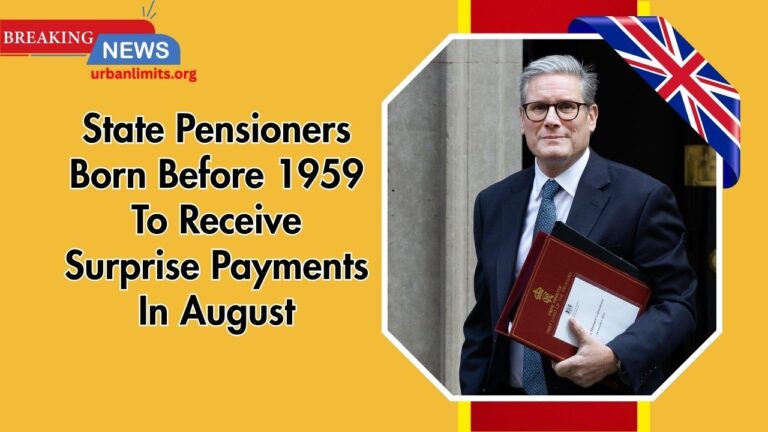How Many Years of Work Are Required to Receive the Full £230 Per Week New State Pension?
According to the latest data from the Department for Work and Pensions (DWP), over 13 million people across the UK are currently receiving State Pension payments. This vital benefit is available to individuals who have reached the qualifying retirement age of 66, provided they have made at least 10 years of National Insurance (NI) contributions.
However, to receive the maximum amount of £230.25 per week under the New State Pension, individuals typically need around 35 years of qualifying NI contributions.
Why 35 Years of Contributions Matter
While 10 years is the minimum required to qualify for any State Pension, reaching the full payment threshold requires approximately 35 qualifying years of NI contributions.
This figure may vary based on an individual’s employment history—especially if they were previously contracted out of the State Pension system, in which case additional years may be necessary.
Those relying solely on State Pension for retirement income must understand how their contribution history impacts their payout.
Upcoming Changes to State Pension Age
The State Pension age will begin increasing to 67 between 2026 and 2028, with plans for a further rise to 68 in the mid-2040s. It is essential to stay informed about these changes as they will affect when you can claim your pension.
How to Qualify for the New State Pension
Minimum Requirement: 10 Qualifying Years
To receive any New State Pension, you must have at least 10 qualifying years of National Insurance contributions. These years don’t need to be consecutive and can include:
- Years you were employed and paying NI
- Years you received NI credits due to unemployment, illness, parenting, or caring responsibilities
- Years where you made voluntary NI contributions
If you’ve lived or worked abroad, or paid reduced rate contributions (e.g., as a married woman or widow), you might still qualify.
Getting the Full Weekly Payment (£230.25)
To get the maximum New State Pension:
- You’ll need around 35 qualifying years of contributions if your NI record starts after 6 April 2016
- If you have between 10 and 34 years, you’ll receive a pro-rata payment, unless you top up your record with voluntary contributions
What Counts as a Qualifying Year?
If You Are Employed
A qualifying year is earned if:
- You’re employed and earning over £242 per week from one employer
- You’re self-employed and paying Class 2 NI
If you earn between £123 and £242 per week, you might still earn a qualifying year, even though you don’t pay standard contributions.
If You Are Not Working
You could still receive NI credits if you:
- Receive Child Benefit for a child under 12 (or under 16 before 2010)
- Claim Jobseeker’s Allowance or ESA
- Are entitled to Carer’s Allowance
Making Up for Gaps in Your NI Record
It is possible to receive the full New State Pension even with gaps in your contribution history.
Here’s what you can do:
- Check your State Pension statement to see how much you’re eligible for
- Request a National Insurance statement from HMRC to identify missing years
- Fill gaps by claiming NI credits or paying voluntary contributions
Visit GOV.UK to review your NI record or see if you’re eligible to make voluntary contributions.
Use Online Tools to Check Your Pension Age
To find out when you can begin claiming your State Pension, use the State Pension age calculator on the GOV.UK website. This tool helps you determine:
- The exact date you qualify
- Your Pension Credit eligibility
Information Summary Table
| Criteria | Details |
|---|---|
| Minimum Years for Any Pension | 10 qualifying NI years |
| Years for Full Pension (£230.25/wk) | Approximately 35 years (may vary if contracted out) |
| Eligible Age (Current) | 66 for men and women |
| Future Age Increases | 67 by 2028, 68 by mid-2040s |
| Contribution Sources | Employment, credits, or voluntary payments |
| Weekly Earnings Threshold | £242/week to pay NI; £123-£242 may still qualify |
| Voluntary Top-Up Option | Available to fill NI record gaps |
Understanding how National Insurance contributions affect your State Pension is crucial for planning a secure retirement. Whether you’re approaching retirement or decades away, reviewing your NI record, checking for gaps, and considering voluntary contributions can help ensure you receive the maximum £230.25 weekly payment.
Keep in mind that the State Pension age is rising, and being proactive now can secure your future financial stability. Make use of government tools to track your contributions and eligibility, and prepare for a more confident retirement.
FAQs
Can I still get State Pension if I have lived or worked abroad?
Yes, you may still qualify for some State Pension even if you’ve spent time abroad, especially if you made contributions during your working years or received credits.
How do I check for gaps in my National Insurance record?
You can check your NI record online through the GOV.UK portal. If gaps are found, you can explore voluntary contributions or claiming credits to fill them.
What if I have fewer than 35 years of NI contributions?
If you have between 10 and 34 qualifying years, you’ll receive a partial State Pension. You may top up your record to increase your future payout.










